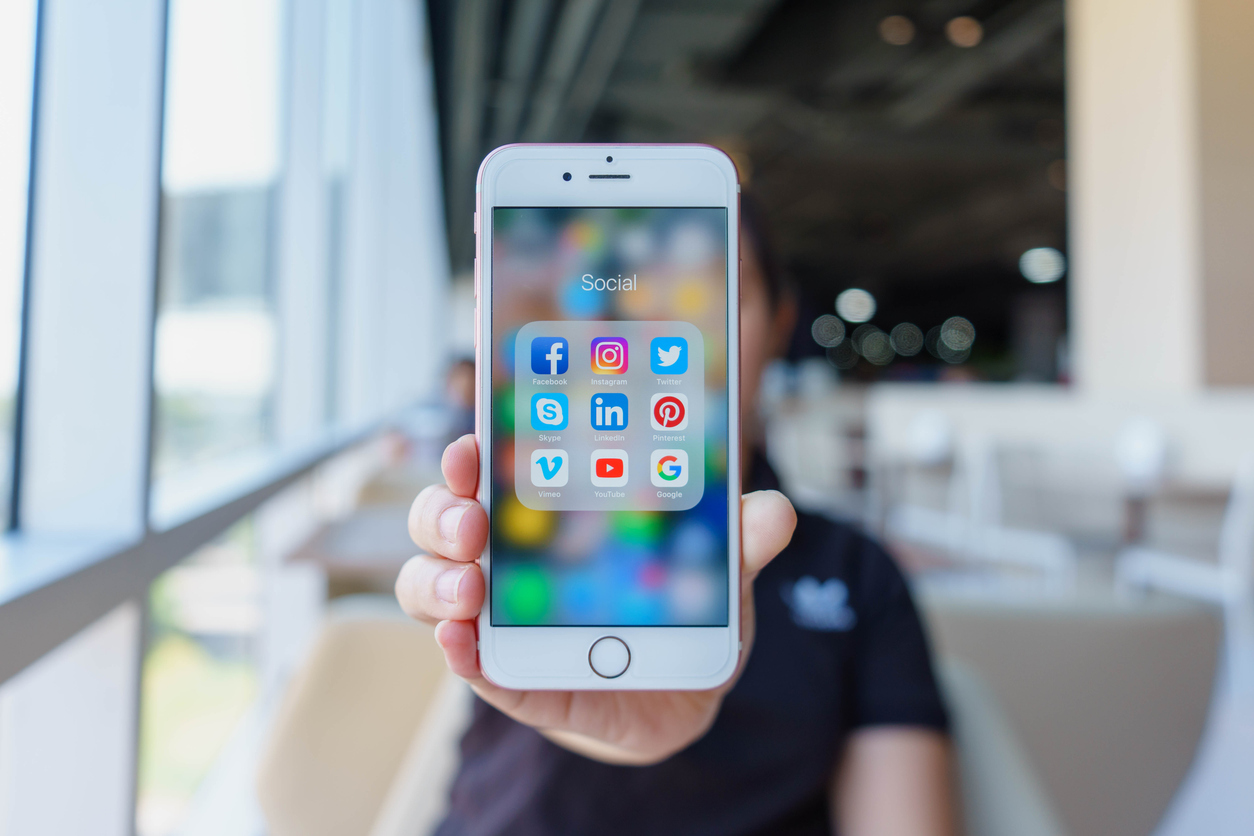Is Social Media Scrolling Costing You Zzzs?

As social creatures, many of us can’t resist the draw of social media. This commonly leads to spending excess time scrolling newsfeeds and liking posts, often late into the evening and before bed. Having only been around for the past decade or so, research on the impact of social media is still striving to understand how the unprecedented and near constant connection with social networks impacts many aspects of life. Keeping up with the constant evolution of social media only makes this task more challenging. Recent research looked at the relation between social media use and sleep in both adolescents and young adults, age groups comprised of the most frequent social media users.
Study 1:
To investigate the impact of screen time, content, and context on timing and duration of sleep in early adolescents, Charmaraman, Richer, Ben-Joseph, and Klerman (2020) recruited 772 6th-8th graders to complete a survey. The students were asked questions about social media, internet, phone use, and the content of the websites and posts they looked at. Additionally, students were asked about their behaviors within 1 hour of bedtime, their bedtime, how long they slept, and if they had any phone/screen time restrictions.
On average, students went to bed at 10:00 p.m. and estimated that they spent about 7.5 hours asleep on school nights. In general, results indicated several negative associations with social media use and sleep. Going to bed later and sleeping less were associated with:
- constantly checking and participating in social media
- problematic Internet behavior (e.g., losing motivation on important tasks due to the internet, feeling nervous or anxious when not online, being moody or depressed when not online)
- fear of missing out (FoMO, meaning anxieties involving the idea that people are having fun without you)
- problematic digital technology use (e.g., needing to check and respond to phone alerts, unable to resist checking phone, thinking about calls and texts they might receive)
- watching more emotional or violent videos
Many students stated that they lost sleep because they could not stop online activities and as a result went to bed later. However, having parental restrictions on phone use and time online before bed, as well as obtaining a smartphone at a later age, were related to an increase in perceived amount of time asleep and earlier bedtimes. Additionally, reading books was the only behavior found to be associated with an earlier bedtime.
Although we see patterns emerging, it’s important to remember that other factors also contribute to the relation between online activities and sleep-related activities. It’s also important to keep in mind that these are students’ own reports about their sleep, not objectively-measured sleep data. Nonetheless, it seems clear that these routines and behaviors before bed – which many adults engage in as well – can have consequences for sleep.
Study 2:
Tandon, Kaur, Dhir, and Mäntymäki (2020) investigated correlations between compulsive social media use (CSMU; a constant need to be online and engaged in social media) and self-reported anxiety, depression, FoMO, and sleep in young adults (age 18-27). Additionally, they examined whether these issues varied between students and full-time employees. The researchers surveyed a sample of active Facebook users made up of 1398 full-time students and 472 full-time employees.
Students who reported using social media excessively reported worse sleep as well as worse sleep habits and behaviors. Employees who reported excessive social media use also felt they had worse sleep, but they did not report having worse sleep behaviors and habits. For both full-time students and employees, excessive social media use was linked to higher levels of anxiety, depression, and FoMO. Greater FoMO was related to worse sleep habits, which was then related to poorer perceived sleep.
Although they did not measure how much time each group spent using social media, the research team suggested that differences between students and employees may reflect amount of use time as it relates to social expectations and work habits. For example, students may feel more pressure from their peers to constantly engage with social media while employees may spend limited time on social media due to their work schedules, which then may limit its impact on sleep. The perception of needing to be online and staying up to date with events and trends may be linked to the higher instances of sleep-related issues seen in the students.
Social Media and Sleep:
It may not come as a surprise that social media can have adverse effects on sleep. Recent research suggests the influence begins in early adolescence and ranges into adulthood. While most research is correlational, patterns of excessive use – especially around bedtime – and poor sleep clearly indicate a connection. Future research may include exploring whether social media use affects sleep in “night owls” versus “morning larks” differently. Looking at the effects of other media (e.g., video games, TV, movies) on sleep can help in further understanding the effects of social media and late-night screen time use. Finally, use of objective sleep measurement along with participants’ self-reports will result in more informative findings when studying these topics.
Article 1:
Charmaraman, L., Richer, A. M., Ben-Joseph, E. P., & Klerman, E. B. (2020). Quantity, content, and context matters: Associations among social technology use and sleep habits in early adolescents. Journal of Adolescent Health, 1-4. doi: 10.1016/j.jadohealth.2020.09.035
Article 2:
Tandon, A., Kaur, P., Dhir, A., & Mäntymäki, M. (2020). Sleepless due to social media? Investigating problematic sleep due to social media and social media sleep hygiene. Computers in Human Behavior, 113, 1-12. doi: 10.1016/j.chb.2020.106487